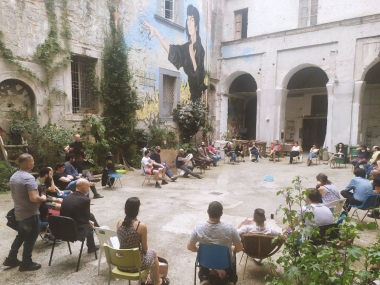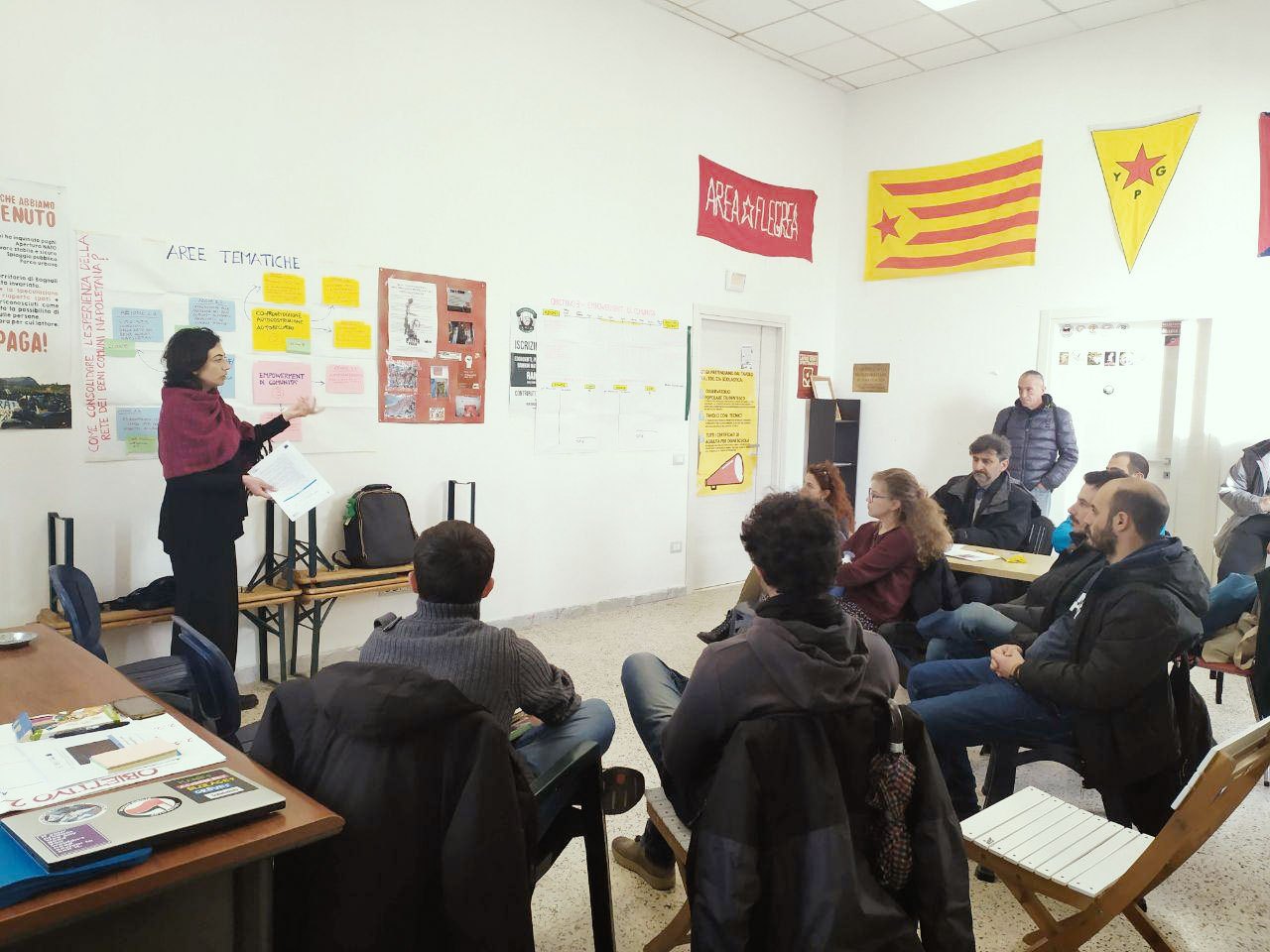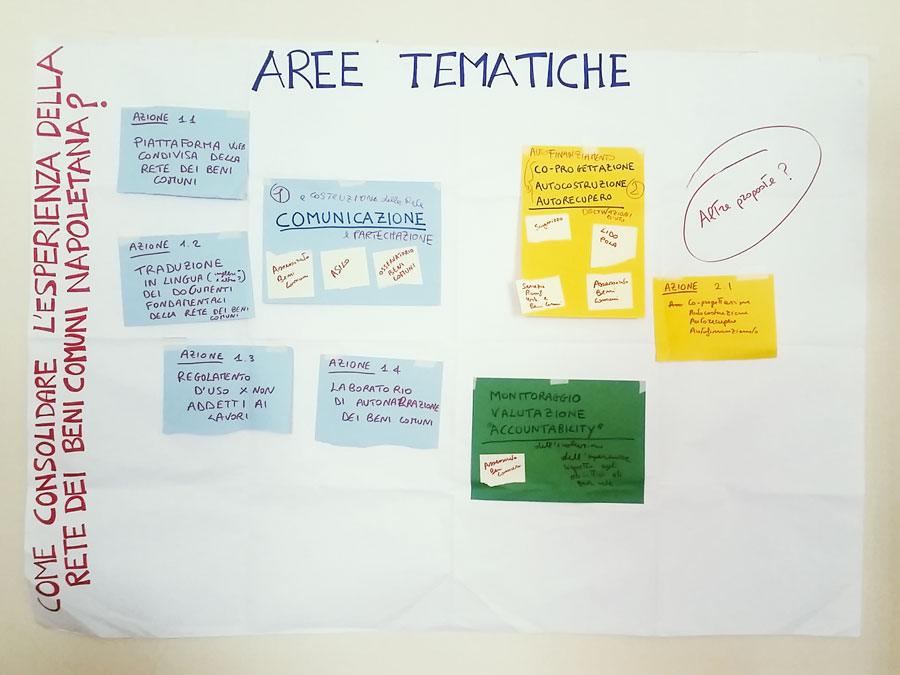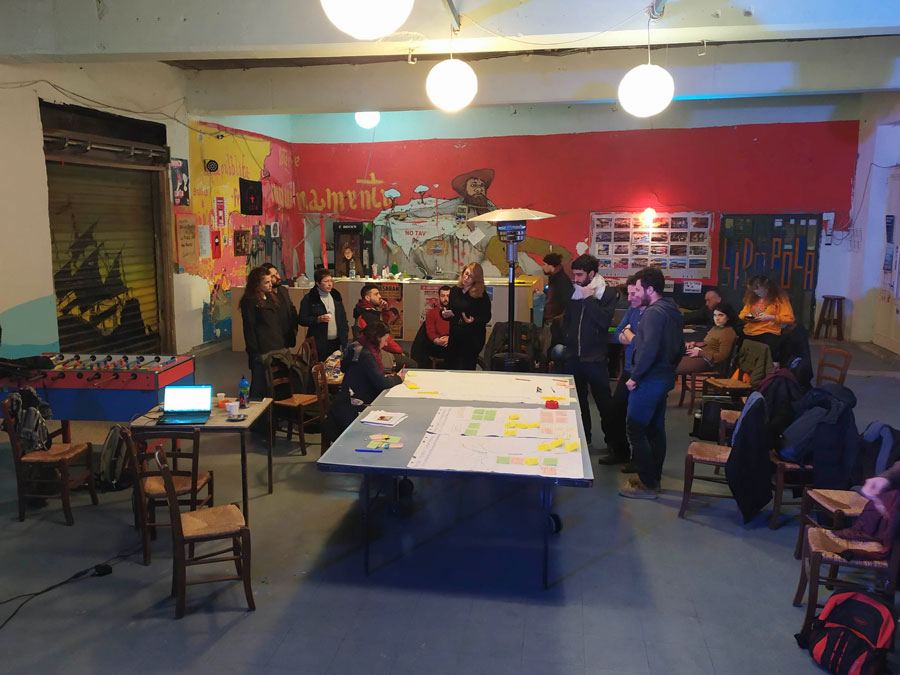Strengthening Naples' Urban Commons network
Edited on
16 July 2020The Neapolitan experience of commons started approximately 8 years ago, but much can still be done to empower and broaden citizen participation. A recap of the actions designed by Naples' URBACT Local Group inside the Civic eState project
Words by Roberta Nicchia, URBACT Local Group Coordinator, City of Naples

The local activities of the Lead Partner within the project Civic eState aim to improve the URBACT Good Practice of the City of Naples “Lost & Found”, that is strengthening the public-community governance approach adopted by the municipality to guarantee the collective enjoyment and management of urban essential facilities, conceived as urban commons.
More than 12 meetings between URBACT Team, City representatives, activists and citizens took place until now, where proposals and activities were put on the table, discussed and finally discarded or developed.

The 9th ULG meetings held at Villa Medusa, Naples, 3 March 2020
The local activities have been organized into three main steps:
- One-to-one or intra-institutional meetings with different councils, departments and services of the Municipality of Naples, with the objective to define the strategy of the local administration in relation to the urban commons in Naples. Moreover, even at this early stage, a first contact was established with the “community of inhabitants” of the urban commons in Naples, in order to define their active participation from the very beginning.
- URBACT Local Group at work! Monthly meetings were held to co-design shared objectives and actions to be realized in order to improve and strengthen the experience of the urban commons’ network in Naples.
- Realization of short-term actions that aim to improve and strengthen the experience of the urban commons network in Naples.

"How to consolidate the Neapolitan network of Urban Commons?", one of the first brainstorming made by the ULG, Naples, 20 June 2019
Up to now, the URBACT Local Group has been crossed by 73 participants, belonging to the Urban Commons network (l'Asilo, Giardino Liberato di Materdei, Scugnizzo Liberato, ex Lido Pola, Santa Fede Liberata, Villa Medusa, ex Convitto delle Monachelle, Villa De Luca), the political departments of the Municipality of Naples (Urban Planning Department and Citizens’ Rights and Social Cohesion Department), the technical services of the Municipality of Naples (Urban Planning and Urban Commons Service, Enhancement of the Historical City Service), the Permanent Observatory on the Urban Commons of the City of Naples. Different urban commons hosted the meetings of the ULG and the participatory process was enlarged also to other relevant local actors.
During this co-design process, three main areas of intervention were identified:
- “Communication / Participation / Construction of the network”: strengthen the communication means of the urban commons of Naples (i.e. through the realization of a website) and develop shared contents to present the different commons as a unique network, both at local level and abroad;
- “Co-design / self-construction / self-recovery”: strengthen the local capacity (both administrative and of the local communities) in finding solutions to the physical deterioration of the urban commons – many of which belong to the cultural heritage of the city – that are compatible with the collective management and civic uses and also include the possibility of self-construction interventions by the “community of inhabitants” themselves.
- “Community empowerment”: improvement of the capacity and competences of the community of inhabitants in managing the commons, focusing on the topics of self-financing (grassroots fundraising), mutualism, cooperation and relational approaches for the co-design.

Naples' ULG meeting at Lido Pola, Civic eState project, 14 January 2020
For each area of intervention specific actions were identified in order to reach the shared objectives. During the ULG meetings, the participants were organized in three working groups, one for each area of interest, and the actions were defined in detail (objectives, expected results/outputs, actors already involved or to be involved, resources, costs and financing, timing, etc...). At the end of each meeting, a plenary session was always organized to share the main results of each working group. At the end of the co-design phase, cross-fertilization plenary meetings were organized with the aim to discuss more deeply the results of each working group, and therefore to make even more shared and rich the definition of the actions to be realized.
The results of the co-design phase have been summarized within the “Local Action Plan for the consolidation of the urban commons in Naples”. The actions described within the Local Action Plan, and the relative objectives, are currently being implemented and should be fully realized within the 4th of June 2020 (end of the Civic eState project).
 Submitted by Gregorio Turolla on
Submitted by Gregorio Turolla on
